04 Oct 2021 - {{hitsCtrl.values.hits}}
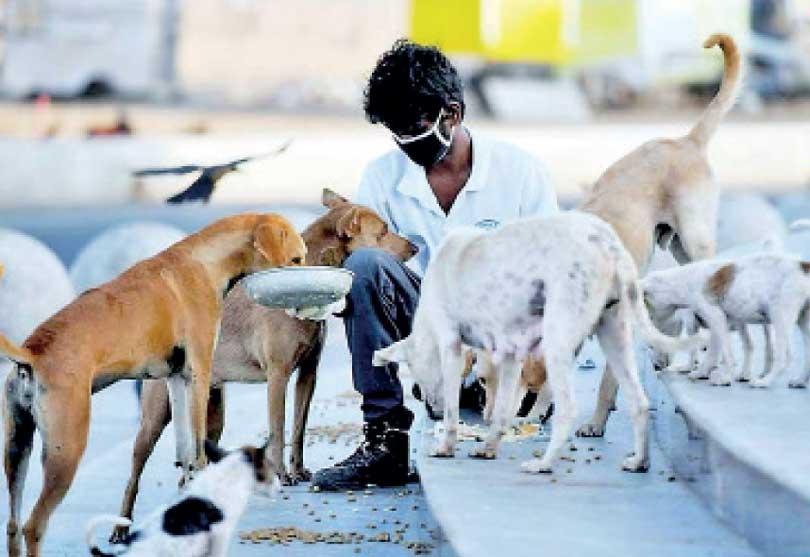
The proposed Animal Welfare Bill will provide protection for the wellbeing of stray animals
 Sri Lanka’s wildlife is at a critical juncture, not only due to ongoing developmental activities but also because relevant authorities are lagging in terms of law enforcement, technological resources etc. Some perpetrators apprehended for wildlife crimes have been released on bail, sometimes due to insufficient evidence or due to their alleged links with politicians. Other than wildlife, it is high time that the proposed Animal Welfare Bill saw light of day in order to protect domestic animals, stray dogs, etc. Large scale habitat loss has resulted in an aggravating human-wildlife conflict, particularly with elephants and leopards. It is in this backdrop that Sri Lanka needs to prepare itself to accommodate stringent regulations in order safeguard all animals and the environment.
Sri Lanka’s wildlife is at a critical juncture, not only due to ongoing developmental activities but also because relevant authorities are lagging in terms of law enforcement, technological resources etc. Some perpetrators apprehended for wildlife crimes have been released on bail, sometimes due to insufficient evidence or due to their alleged links with politicians. Other than wildlife, it is high time that the proposed Animal Welfare Bill saw light of day in order to protect domestic animals, stray dogs, etc. Large scale habitat loss has resulted in an aggravating human-wildlife conflict, particularly with elephants and leopards. It is in this backdrop that Sri Lanka needs to prepare itself to accommodate stringent regulations in order safeguard all animals and the environment.
Spotlight on the proposed Animal Welfare Bill
The proposed Animal Welfare Bill was drafted in 2006 and tabled in Parliament in 2010. The existing law addressing cruelty towards animals is embodied in the Prevention of Cruelty to Animals Ordinance No. 3 of 1907. In her comments, lawyer and animal welfare advocate Lalani Perera shared her views about the progress of the proposed animal welfare bill, regulation of pet shops, animal slaughter practices and sterilization programmes.
The Bill was prepared by Sri Lanka’s Law Commission and submitted to the then President in 2006. It is through a case filed in the Court of Appeal in 2010, that a group of us were able to draw the attention of the government for the need for this Bill.
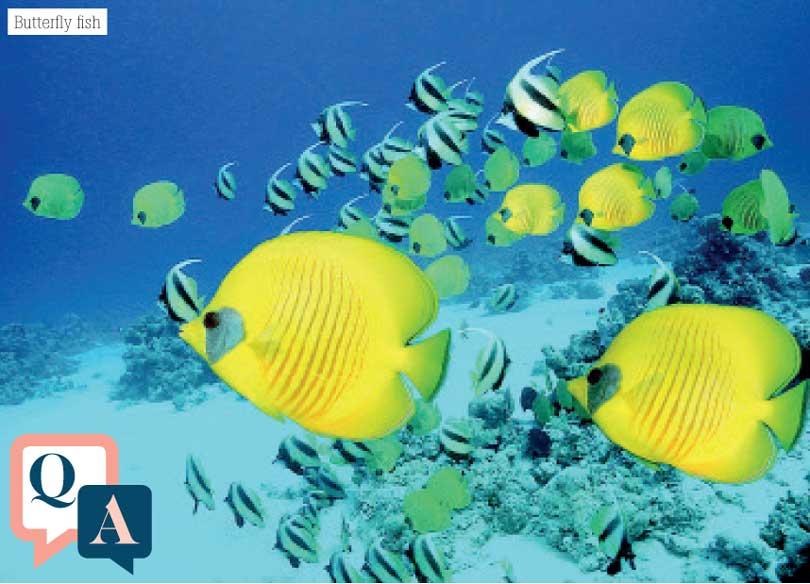
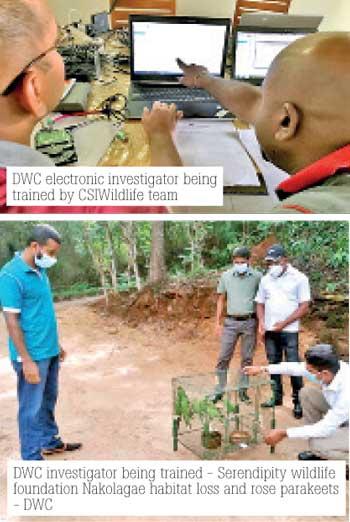 QThere’s a huge debate on animal slaughter, particularly with regards to religious practices. What is your take on this matter?
QThere’s a huge debate on animal slaughter, particularly with regards to religious practices. What is your take on this matter?
Serendipity Wildlife Foundation’s CSIwildlife programme and the TUSKS programme is heavily involved in electronic technology to detect and investigate wildlife crime in Asia and Africa.”
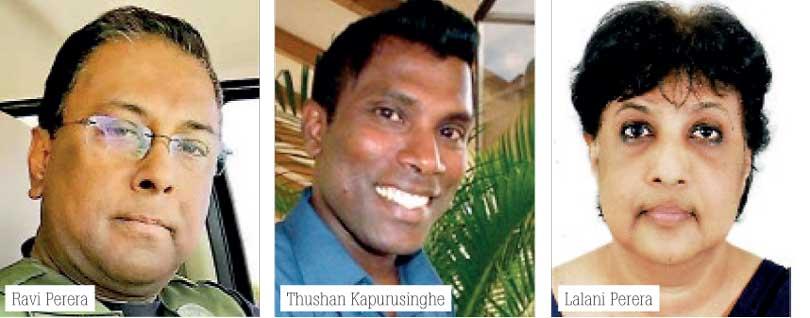
Technological support to tackle wildlife crimes
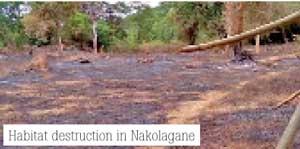 Sri Lanka has recently witnessed an alarming increase in wildlife crimes. The Department of Wildlife Conservation has over the past few months caught many people who have entered protected areas, Forest reserves without permission while some of them were apprehended for poaching. However, Sri Lanka needs to streamline its use of technology and trained personnel in tackling wildlife crimes. Adding his thoughts, Serendipity Wildlife Foundation Founder Ravi Perera said that more and more organizations are using technology to fight wildlife crime around the world. “Serendipity Wildlife Foundation’s CSIwildlife programme and the TUSKS programme is heavily involved in electronic technology to detect and investigate wildlife crime in Asia and Africa. Our equipment ranges from cell phone detection and interception, satellite imagery, thermal imagery, social media investigation, and a variety of hidden camera devices. We offer our services and assistance to our partners in Asia and Africa free of charge. In addition, Serendipity Wildlife Foundation has a classified database exclusive to wildlife crimes, with information that can me shared with worldwide agencies. In 2019, three DWC personnel were trained in electronic forensics and due to Covid, all work had to be put on hold in starting an Electronic Forensic Workstation exclusively for wildlife crimes. Now, with the country opening up, we will continue our plans to complete this project, and have Sri Lanka as the very first country in Asia to have a Wildlife Electronic Forensic Workstation to analyze and investigate cell phones, computers, and other devices involved in wildlife crime.”
Sri Lanka has recently witnessed an alarming increase in wildlife crimes. The Department of Wildlife Conservation has over the past few months caught many people who have entered protected areas, Forest reserves without permission while some of them were apprehended for poaching. However, Sri Lanka needs to streamline its use of technology and trained personnel in tackling wildlife crimes. Adding his thoughts, Serendipity Wildlife Foundation Founder Ravi Perera said that more and more organizations are using technology to fight wildlife crime around the world. “Serendipity Wildlife Foundation’s CSIwildlife programme and the TUSKS programme is heavily involved in electronic technology to detect and investigate wildlife crime in Asia and Africa. Our equipment ranges from cell phone detection and interception, satellite imagery, thermal imagery, social media investigation, and a variety of hidden camera devices. We offer our services and assistance to our partners in Asia and Africa free of charge. In addition, Serendipity Wildlife Foundation has a classified database exclusive to wildlife crimes, with information that can me shared with worldwide agencies. In 2019, three DWC personnel were trained in electronic forensics and due to Covid, all work had to be put on hold in starting an Electronic Forensic Workstation exclusively for wildlife crimes. Now, with the country opening up, we will continue our plans to complete this project, and have Sri Lanka as the very first country in Asia to have a Wildlife Electronic Forensic Workstation to analyze and investigate cell phones, computers, and other devices involved in wildlife crime.”
Threats for turtle nesting and fishing practices
The X-Press Pearl inferno posed an irreversible threat to the marine ecosystem. Apart from that many marine species have been posed with threats due to developmental activities that are underway along Sri Lanka ‘s coastline. Turtles for example have been threatened with light pollution as many hotels have now come up near coastal areas. “Beach vegetation is on the decline mainly due to human encroachment and due to natural incidents such as rough seas,” opined Thushan Kapurusinghe of The Turtle Conservation Project. “For example many green turtles prefer to nest under bushes or vegetation and these species will be threatened with extinction. On the other hand people poach turtle eggs and nesting beaches are now frequented by stray dogs. Stray dogs destroy incubating eggs and prey on hatchlings. Many turtle hatcheries have restricted obtaining eggs as they don’t have an income with the ongoing pandemic.”
Speaking about the ornamental fish industry, Kapurusinghe said that there are seawater fish and freshwater fish being used in this industry. “But a majority of fish that are being exported are freshwater fish and they are not endemic to Sri Lanka. However people also have the habit of catching colour fish, also known as reef fish. These fishes are being caught from lagoons thereby posing a threat to the population size. For example, butterfly fish feed on polyps and maintain a healthy coral reef. Some people also have the practice of breeding or raising ornamental fish and releasing them to rivers and lakes. Species such as catfish, glass cleaner have become a threat to the local freshwater fish population. Another species called the Apple Snail has been introduced to Sri Lanka and now it is an invasive species.”
When asked about regulations, he said that people cannot catch certain endangered, critically endangered fish as it is prohibited by the law. “But we don’t know how many specimen are there in our waters to keep a tab of population sizes and other details. Some countries give a quota for fishermen in order to balance the fish population while allowing fishermen to make an income. In Sri Lanka there was a ban on catching female lobsters with eggs, but then fishermen still caught female lobsters and removed their eggs prior to maturation. Therefore there’s an issue in enforcing the law as well. The state has to negotiate with fishermen and introduce sustainable fishing practices,” he added.
23 Nov 2024 23 Nov 2024
23 Nov 2024 23 Nov 2024
23 Nov 2024 23 Nov 2024
23 Nov 2024 23 Nov 2024
23 Nov 2024 23 Nov 2024